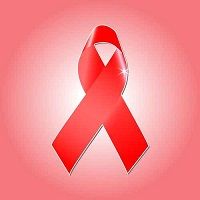Article
Even Healthcare Workers Attach Stigma to HIV
Author(s):
Healthcare workers might be expected to have the facts on HIV transmission rates. A study showed that at a Kansas tertiary care hospital, more than a quarter of workers who answered a survey harbored misconceptions.

Healthcare workers may be just as likely as the general public to have inexact knowledge of the risk of HIV transmission.
Christopher Petry, DO, of the University of Kansas Medical Center in Kansas City, KS and colleagues reported on a survey of health-care workers in a Midwestern US tertiary care center regarding HIV transmission risk and their opinions about HIV positive health-care workers.
“Opinions and stigma about this infection are slow to change even among health-care workers,” the team wrote in an abstract presented at IDWeek 2016 in New Orleans, LA on Oct. 27.
About a quarter of respondents said they would not want an HIV positive physician to perform surgery on them, and 15% would not want an HIV-positive technician to start an intravenous line on them.
The team did an email survey of 5,588 workers at University of Kansas Medical Center. They got a 14.8% response rate.The respondents included physicians, fellows, residents, medical students, nurses, nurse practitioners, physician assistants, pharmacists, and technicians. The researchers collected demographics on the respondents as well.
According to their analysis, the respondents were 75.2% female, 88.9% white and 51% nurses. Half were younger than 35 years.
Regarding surgical procedures performed by HIV positive health-care workers, 22.1% said they would not allow an HIV positive surgeon to electively perform their cholecystectomy and 26.5% would not allow such a physician to do heart surgery; 17.6% said they would decline having such a doctor assist in their vaginal delivery and 27.7% said they would decline a C-section if their delivery was performed by an HIV-positive physician, and 15% said they would refuse allowing an HIV positive health-care worker start their intravenous line.
However, 70.9% said they would keep their trusted personal physician or surgeon if they found out the physician is HIV positive.
A third of respondents said they had never been tested for HIV and 40.8% agreed that all physicians and health-care workers should be required to be tested for HIV.
Requirement to disclosure HIV status to patients irrespective of risk of transmission got only 5.5% approval.
Blood in contact with intact skin was deemed intermediate risk by 36.7%.
As for non-medical activities, unprotected sexual intercourse with someone taking HIV medications was considered a low risk by only 9.2%., while 49.3% of respondents considered oral sex as high risk whereas medium to high-risk activities included exposure to saliva/spitting (23.2%) and French kissing (38.8%).
The team concluded, “More education is needed among health-care workers about transmission risk of HIV, in order to increase awareness and reduce the stigma associated with this chronic infection."
Related Coverage:
Puerto Rico’s HIV/AIDS Problem Grows as Economy Tanks
Depression Contributes to Heart Attack Risk in HIV Positive People



